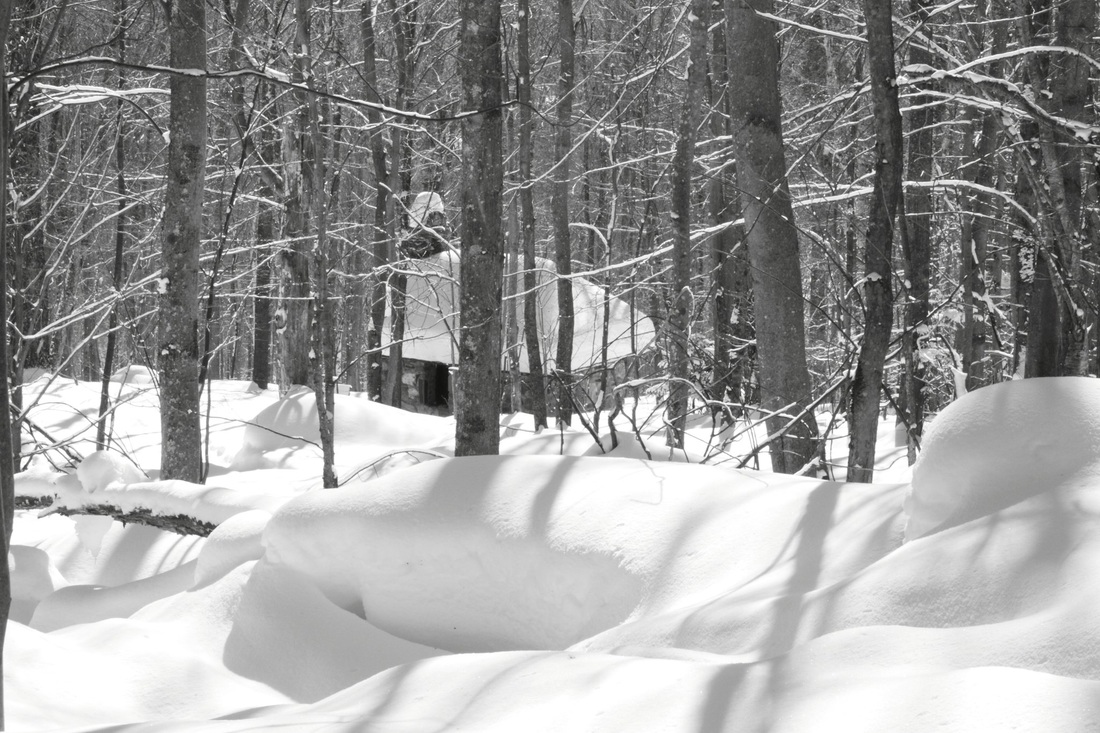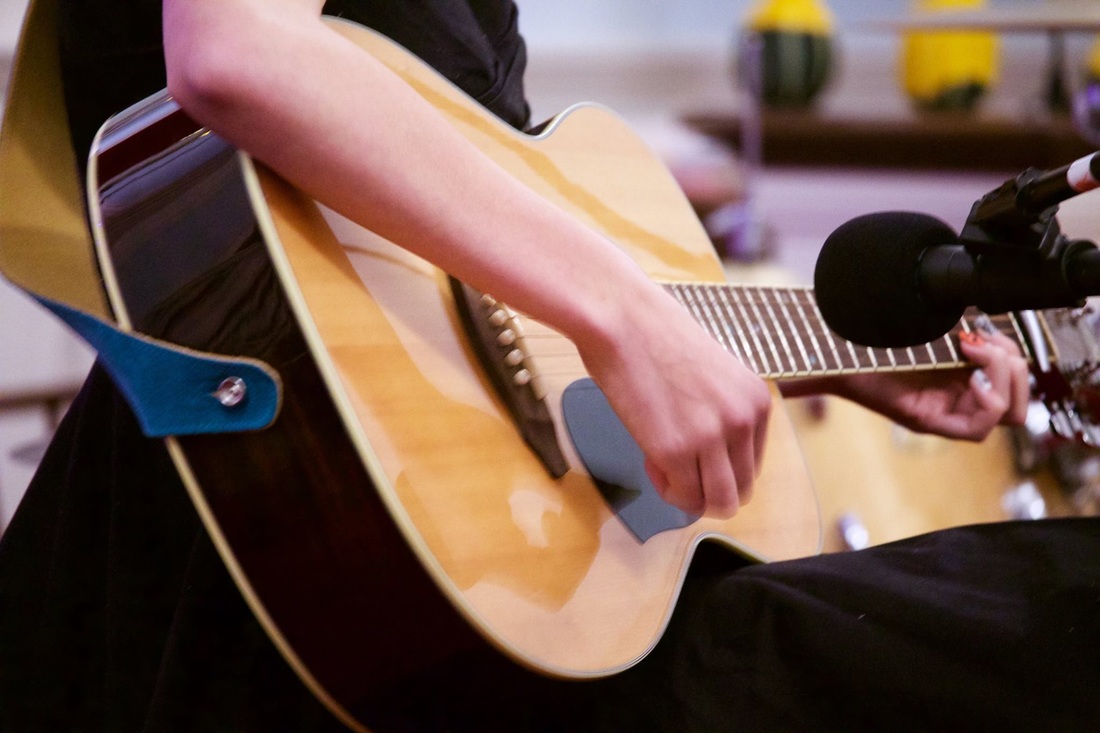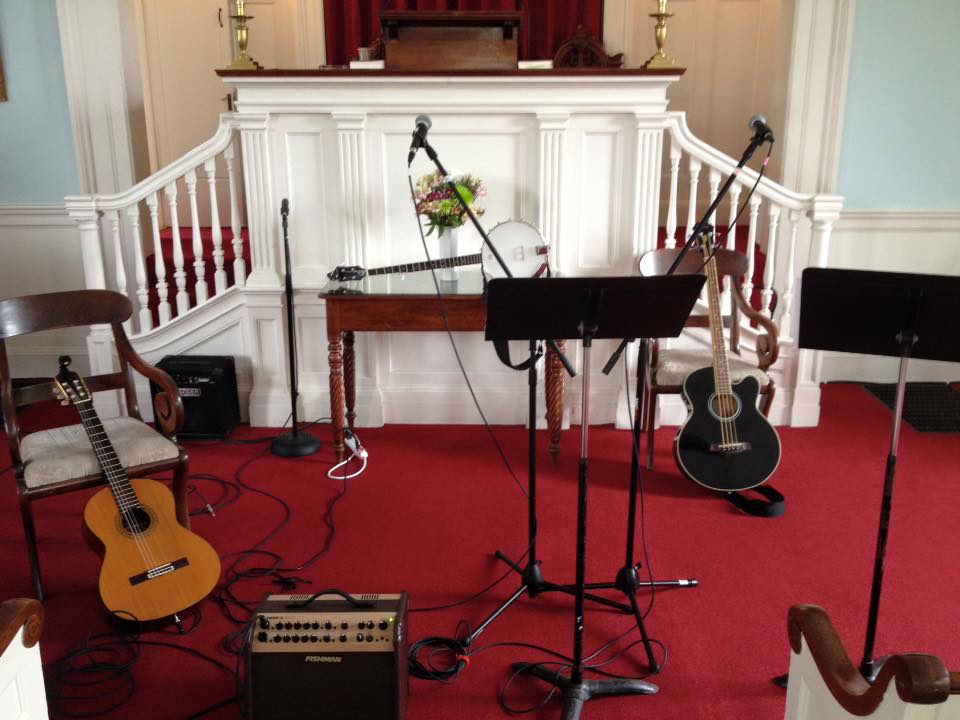 Memorial Day weekend is just around the corner. Therefore, I am planning for the end of this year and then for what I will be doing this summer and fall. When planning for sabbatical, I assumed that I could maintain either one large project or a few smaller ones. Since the last few years of ministry I've given rise to a number of questions for me, I chose the smaller ones. One of these is being fleshed out on this weblog under the heading "Burbania Folk". As I've mentioned before, it consists of a personal exploration into a number of folksongs. The second project in order of priority is simply finding a way to become more religious. This may seem strange to some people but my colleagues will know what I'm talking about. The fact is, it is actually quite difficult at times to live a "faith filled" life (whatever that might mean) when one's job is helping other people lead there's. I love my job. However, when you do something you love for work it sometimes becomes difficult to remember what made you interested in it in the first place. We can all, for example, think of a number of professional athletes who retire early or who demand more money. We also know that when they do this many fans and reporters are incredulous! Those enthusiastic non-athletes would love to have the opportunity to play the game instead of whatever they are doing. We react the same way to musicians who stop touring and politicians who stop running for public office. What we often don't realize is that when what you love to do for fun and fulfillment becomes what you do each day, the relationship changes. Pastoring is a way of life. The longer one does it the more it becomes part of the landscape. Over the years it becomes more difficult to notice the work as being unique, special, and different. It also becomes more difficult to find a method and a means for one's own spiritual development. This is one of the primary reasons for sabbatical in the first place. It is important for clergy to get back in touch with what originally called them to choose the spiritual life. To keep it simple, I have a two-step plan. First, I need to find a church. This of course is not something that I am accustomed to. In fact, finding a church --for a minister on sabbatical--can be a rather difficult task. After all, we have the same challenges that everyone has. There's the family schedule. There are other tasks that need to be done. There are other plans for the weekend. Church attendance requires discipline no matter how frequently or infrequently one plans on attending. I do have some ideas about what I would like to do. I know the kind of church that I enjoy attending. The challenge is to match my desires with reality. Right now I can think of to possible services I could attend regularly. One would require something of a commute into Boston but would be exciting and different. It is been a long time since I have been part of a city church. In seminary in Chicago I attended both First Unitarian and Second Unitarian before getting a job at the UU church in Evanston. Since then I have served rural churches and, of course, the Eliot Church here in the burbs. Each setting is different and has its own strengths. However, it would be nice to sit in the back of an urban sanctuary on Sunday morning once again. My other option is closer to home, more convenient, and yet quite different from where I work. It is also part of a denomination that I do not represent. This would be a good thing as it will force me to think in different ways. I will probably check in on both at various times depending on other plans. Maybe I will even visit somewhere else. What is important, for me, is that it be different from Eliot enough so that I connect to it in a different way while still being close enough to my own theology that I get something out of it. Second, I need to find ways to be religious in the community and at home. My question, quite simply, is how do I live a religious life without the anchor of my job? Many folks like to talk about their walks in the woods as a spiritual experience. Well, I also go for walks in the wood and sometimes it is spiritual. But is it adequate? No. there has to be more than an "opening up". The religious life needs a call and accountability. I may come up with some kind of prayer or ritual eventually. My normal habits, however, tend more in the direction of reading and study. I suspect that over the months of sabbatical I will be posting more book recommendations than prayers. That is just what works for me. That is all for now. I am still flushing out this part of sabbatical. With the changes in church life that have been escalating over the past decade or so, I have found myself curious about what life will be like in the "church of the future". People around the world are trying new and different ways for finding spiritual connection. Sabbatical is my chance to try a few things out as well.
0 Comments
Just in case you were interested in what, exactly, we played on Folk Sunday, I am including the insert where we explained a bit the songs we played. We recorded all the music and--eventually--some of these recordings will be used for my sabbatical "Burbania Folk" project, the outlines of which are described elsewhere on the blog. All the songs except "Freedom" currently fit the working parameters. Anyway, here they are in the order presented...
White House Blues (Traditional) First recorded by Charlie Poole in 1926, this classic song tells part of the story of the assassination of President William McKinley (by the anarchist Leon Czolgosz) in 1901. It lives on today thanks to its role interpreting one of the important events of the progressive era. In addition, it is fun to play and has become a bluegrass and old-time standard. As with many folk songs, there are more verses then there is time to sing them. One classic version reviews the assassination and its aftermath in epic detail. Today, however, we will be performing the shorter version similar to the one recorded by Poole. Keep Your Eyes on the Prize (Traditional) With deep roots in the African American folk tradition, this song became an essential part of the soundtrack of the civil rights movement. It grew out of a number of older songs including the church hymn "Gospel Plow". As with many civil rights songs it has a life in the church that continues to this day. Part of its long life stems from its ability to speak truth in both sacred and secular contexts. Fields of Athenry (Pete St. John) At one time this song was considered to be quite old. However, while it addresses the plight of the Irish during the great famine (1845 to 1850), it turns out to have been written in the 1970s! It's simple and accessible tune no doubt led people to ascribe a greater age to the work. It is a popular song in Ireland where it is sung by fans at rugby games and other sporting events. Here in New England it is best known in its folk-punk incarnation as performed by The Dropkick Murphys. Even though it is a relatively new song, we are singing it anyway as it fits today's theme of music commenting on society. Also, it reminds us that folk music in its purest form (that is, songs that transcend the performance of their originator and become the property of all the people who who perform, modify, and interpret in their own way) is still being made. Freedom (Kenneth Pattengale and Joey Ryan) This is the newest song in our service today. Written for their 2015 album Monterey, the Milk Carton Kids (Pattengale and Ryan) examine the current questions around the concept of freedom in our country. This is a particularly timely song in light of modern fears around immigration, terrorism, and gun violence. Whether it becomes a classic or not remains to be seen. However, it is a fine example of political and social commentary within the singer-songwriter tradition that began during the mid 20th Century. This Land is Your Land (Woody Guthrie) This song needs little introduction. The words were written by Woody Guthrie in 1940 as a direct response to "God Bless America" the Kate Smith version of which was played regularly on the radio as the nation prepared to enter the Second World War. Guthrie wanted a song that reflected the diversity and potential on the country while also underlining some of its more pressing problems. The tune was modified from an old Baptist hymn. Of course, the McCarthy era was a difficult time for progressives, who found much of their work repressed. Thanks to the upbeat and easy tune, this deeply political song survived in the elementary schools (with the more political versus removed) and remains one of the most popular songs in the United States. Our version today may sound somewhat unfamiliar as we are relying heavily on those more political verses that have been avoided at times out of fear, censorship, or politeness. If I Had a Hammer (Hammer Song) (Pete Seeger and Lee Hayes) Written for the Weavers in 1949, this song has been an integral part of the American progressive landscape. Interestingly, most people probably remember learning it in school or in summer camp. This is particularly surprising when we consider that its first live performance was at a testimonial dinner for leaders of the Communist Party of the United States! Many of the more political folk songs in history have depended on their popularity with children for their survival. There hasn't been much action on the blog. I have been spending more time videotaping sermons, apparently. To remedy that, here is a sermon (adapted somewhat to fit some semblance of written rather than spoken word) about "Folk Sunday" which was this past week. Obviously with the sabbatical coming up I am thinking about the place of Folk in our culture. Anyway, it is short (we had a lot of music to play and a service project to attend to) but it is an attempt...
Music is a tone of voice, the sound life uses to keep the living alive. They call us back many times a day from the brinks of torture—the holes of superstition. There never was a sound that was not music—there's no real trick of creating words to set to music—once you realize that the word is the music and the people are the song. __Woody Guthrie Now, I know we don't have much time right now. We have a service project to attend to. But it seemed to make sense to take a moment to explain why we go through this exercise [of Folk Sunday] every year. It isn't just for fun, you know, although I certainly think it is. No, what we are doing today (gathered together in our amateur, non-professional condition in order to sing and hear songs) is taking back something vital to human expression; taking it back from the corporate culture that wants to put a price on everything. This includes art, itself, to the point of judging its quality based on how much it can be sold for. I think most of you know that I take music pretty seriously. I don't play it well, but I enjoy it a great deal. Over the years I have built up a pretty solid collection of the recorded variety. I have recordings of music produced by professionals both famous and not so famous. I have mix-tapes from my youth, bootlegs, CD's and itunes. I even possess a small collection of vinyl records, too. Also, like many of you--I know this because we have gone together--I have invested a good deal of money and time with the objective of attending live concerts. Some of them have been here at the church, of course. However, I also regularly seek out bands at clubs in Boston and in other towns. Of course, I can also be found music festivals around New England and in upstate New York. So I listen to and enjoy a wide variety of styles with various levels of artistry. However, I have to say that folk music--which in this case means not the acoustic music marketed as “folk” by record companies (which I also enjoy) but actual folk music played by people like us for little or no money--is just as important, just as relevant as any other form. In many ways it is even more relevant. Folk works with a broader topical palette than commercial popular music does. At its heart it reflects the sounds and feelings that come from people's actual lives. It frequently reflects sounds and feelings from areas that many may not see as worthy or worthwhile topics when economic gain is the primary filter. A song about the assassination of a president like we heard today would be one example. There are others too. Songs about a public works project or about an unpopular war, or gun control or civil rights would have (and has had in the past) a hard time getting air play in the midst of the constant wave of semi-romantic and self-referential songs that have usually made up the bulk of commercial forms. Folk songs live in a way that most recorded popular music does not. When a song goes through the process of becoming a more general part of the human sonic landscape, it changes. Folk singers (which is to say people like you and me) don't worry so much about getting the words right or the tunes and the meter just so. What is important is the intent, the message, the feeling it produces as it is passed from hand to hand over generations. In folk music, as in life itself, our limitations frequently provide the catalyst for inspiration as much as our strengths do. Also--just as we do in church With our readings both sacred and secular--we apply those songs to new contexts and new situations. So over time a church song like “Eyes on the Prize” can become a protest song. Or--perhaps more telling--is that story about “This Land is Your Land”. This is a song that began as a protest song, survived the second Red Scare as a children's song, was rediscovered as a patriotic song, and is now in the process of becoming a protest song once again. This is a cycle that is as old as music, as old as humanity. Woody Guthrie tells us that “there never was a sound that was not music”. In fact, it is a cycle that has been part of all creative forms for most of human history. If you wanted a story, a song, a painting, a chair, or a sermon you wouldn't go out and buy one, or find other more passive means of acquisition. You or your friends and family would have to make one, or share one, modify one, grow one. For most of human existence, art was just like everything else that people made. It required numerous individuals with numerous ideas. It required collaboration, of course, and time. Time to develop and nurture those ideas into something with structure and order and grace. For most people the closest they would get to a concert was sitting around with their friends, everyone contributing to the process in some way. Performers today still try to reproduce that participatory element. They seek out some of that connection in shows and concerts. Here at Eliot we also seek that connection. We don't just do this on Folk/Service Sunday. We do it on every Sunday with volunteer musicians and readers; coffee hour contributors and raised bed planters. We are a community, a family, a congregation bringing what we have to make something together. Folk music--like folk art and folk worship--us an act of resistance Against the forces of uniformity and conformity. Therefore it is holy. Therefore it is sacred. Now, the time has come for us to move this service along. We have one more song to sing. Then we have to grab our coffee and go do some planting. However, as we prepare ourselves for these tasks let us strive to remember the special sound that we make. It may not be as polished as we might like. It may not reflect all that we want to say or dream but it is ours. It is special, unique, and good. |
Adam Tierney-EliotThis is my old weblog of many years. I will probably post here from time to time is there is a subject that does not fit WWG. However WWG is the more active page at this point. Archives
April 2022
Categories
All
|


 RSS Feed
RSS Feed